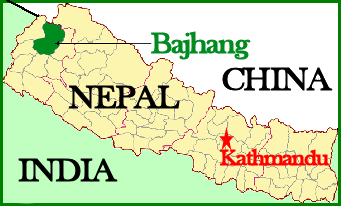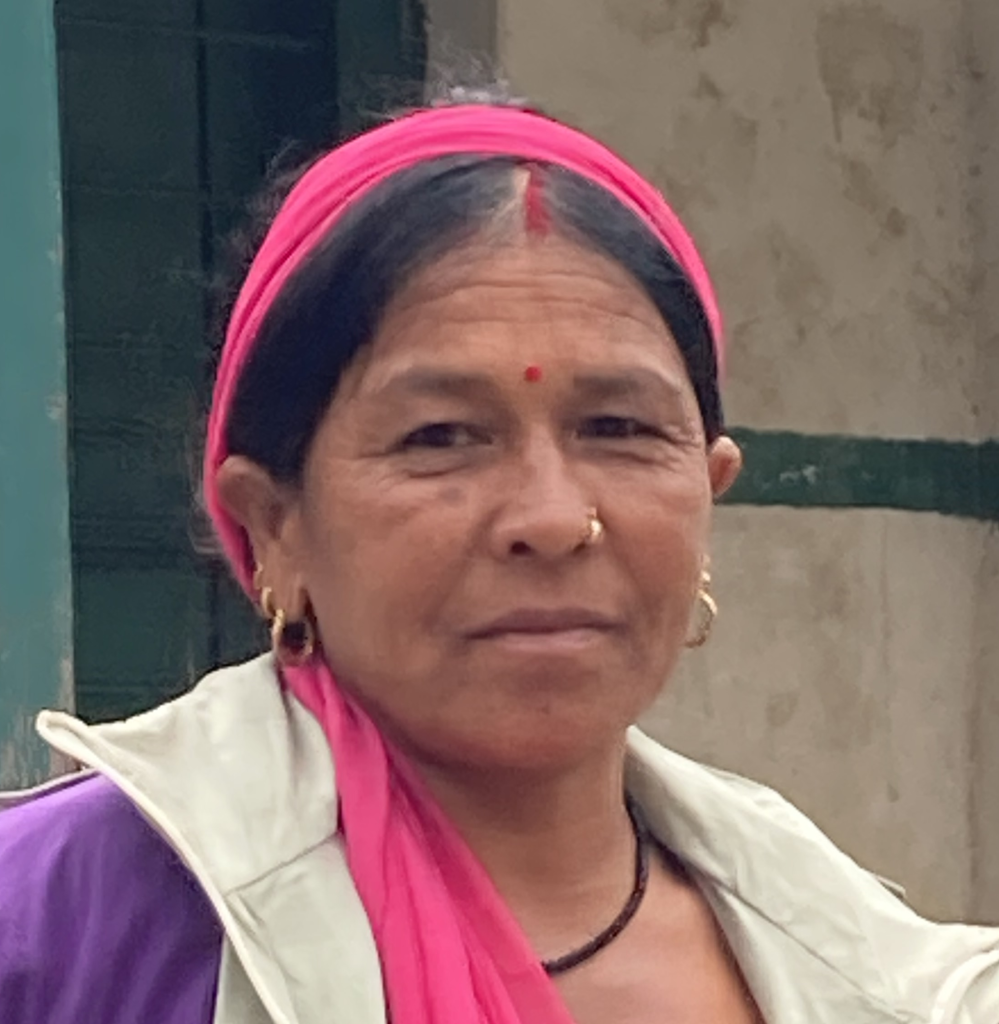
Background
The village of Khori is located at an altitude of 2,650 meters in the far western district of Bajhang, one of the poorest of Nepal’s 77 districts.

As in every village, it was mainly the women who worked in the fields or carried heavy loads as day laborers, while the men spent the whole day playing cards and board games. The women had to give their money to their husbands, who spent it on alcohol. In the evening, they came home drunk, where they usually beat their wives and children. A woman from Khori: “Violence broke out: in almost every house in the village, you could hear the women and children crying when the drunken husbands came home in the evening.”

The women of Khori with HEAR Nepal representatives in the back row
One day eight years ago, the women had enough! They joined forces, banned the production and consumption of alcohol, and imposed a fine on anyone found drunk in the village. They invested the money in improving the infrastructure of their village. They installed water pipes in the houses so that they did not have to fetch water from the well every day and toilets were installed in all the houses. They started setting up income-generating projects.
Their actions were very well received by the local community. They provided them with financial support to build greenhouses so that women could grow vegetables that would not normally thrive at this altitude. They have abolished the tradition of Chhaupadi, where menstruating girls and women are forced to live in unheated and unsanitary cowsheds during their periods, from menarche to menopause. Today, the village is flourishing. The initially critical men now appreciate the women’s leadership in practically all areas of life.

A woman from Khori who fined her husband four times
Project
In our experience, true empowerment cannot be given, only taken. So we were thrilled to read about this village in the Kathmandu Post (see article), where women took their lives into their own hands. However, this spark of self-empowerment has not spread to the other villages.
It is well known that storytelling is one of the most effective ways of conveying an idea. We therefore believed that letting the women from Khori tell their story would be the best way to motivate women in other villages to embrace their power to change their situation.
Although the focus of the project was on women’s empowerment, we quickly realized that it would be useful to gain support for the project from the men. To reduce the likelihood of resistance from the men in the villages and to gain their support for the project instead, we decided to take two men from Khori who had already been through the process and appreciated it with us to the villages to also tell their story.
HEAR Nepal therefore asked 2 women and 2 men from Khori to go to 10 other villages to tell their story with the intention of encouraging the women to take their power and do something similar to the women of Khori. The men from Khori truthfully told the men in the villages how they had fared and how important it was to support the women in their appropriation of power.
The result was overwhelming.
Perhaps most importantly, in all ten villages, the position of women changed and they began to be treated equally and respectfully by men for the first time. In 9 of the 10 villages, women banned alcohol and gambling, which has had a significant impact and changed the villages. Virtually all forms of domestic violence, as well as violence between the men, ceased. The harmful tradition of Chhaupadi (see above) also declined sharply. Today, virtually no women in these villages have to live in the so-called Chhau huts during their period. This is a goal that has eluded many attempts by various NGOs but occurred effortlessly when the women took their power.
Despite initial protests, the women have been able to persuade the men in the villages to help out in agriculture, business, household chores and other tasks, which has improved their socio-economic status in the villages. They have initiated various income-generating projects and are well on their way to taking over a large part of the decision-making in the villages.
We are now planning to implement the project in 50 other villages, which could gradually lead to a wildfire of women’s empowerment in rural Nepal.
